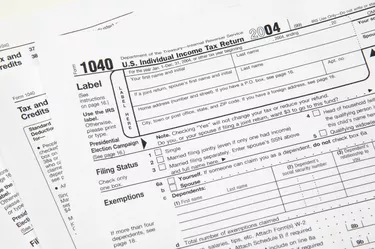
There is no tax deduction for preschool. You can qualify for a tax credit for preschool payments if you are sending your child to preschool so you can work or look for work. You are out of luck however, if you are a stay-at-home parent that sends his child to preschool because he believes in the benefits of preschool.
Limited Credit
Video of the Day

The maximum tax credit available is $3,000 for one child and $6,000 for two as of 2010. The credit is based on a percentage of your expenses, which declines as income rises. Persons making under $15,000 per year can claim 35 percent of childcare expenses. People who earn more than $43,000 can claim 20 percent of expenses.
Video of the Day
Flexible Spending

If your employer offers a tax-deferred flexible spending account, you may be able to divert $5,000 to childcare. Routing the expenses through the FSA account will have the same effect as a tax deduction, as it lowers gross income. You cannot, however, use expenses routed through the flexible spending account to claim the child care tax credit.
Crafty Planning

If you have more than two children in preschool, your childcare expenses can add up quickly. You can get the most bang for your buck with a little planning. First, send the maximum amount of your childcare expenses through your flex account. If your expenses exceed $5,000, you can apply the difference to the tax credit.
Flex Spending Vs. Tax Credit

Since you can't claim both for the same dollars, it takes a little financial number crunching to figure out whether the FSA or tax credit is better. Kimberly Lankford, writing for Kiplinger's, notes that funds routed through an FSA avoid a tax rate of about 22 percent for the lowest bracket of earners. Those tax rates increase as income increases. So FSAs are usually best as income rises.